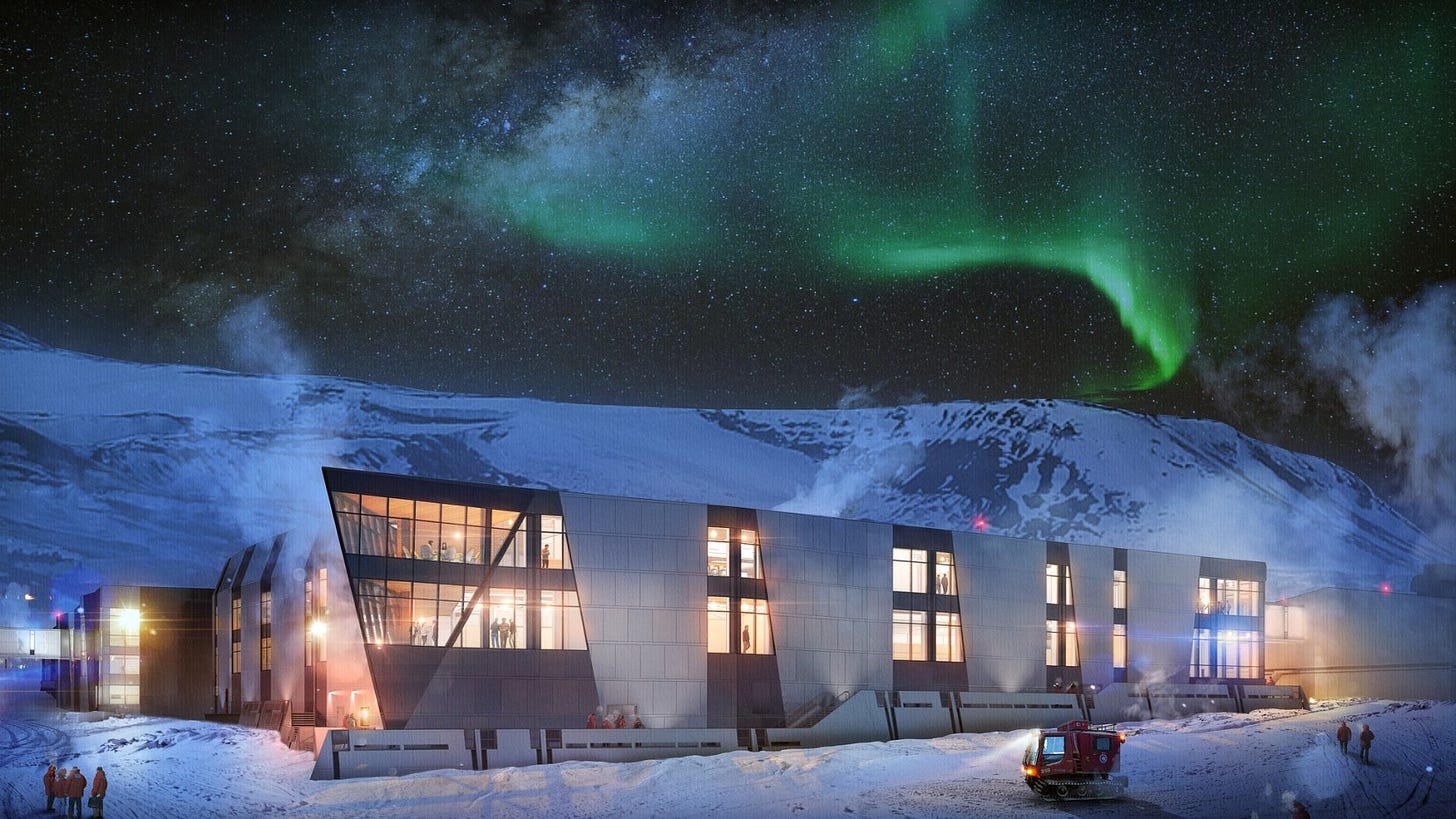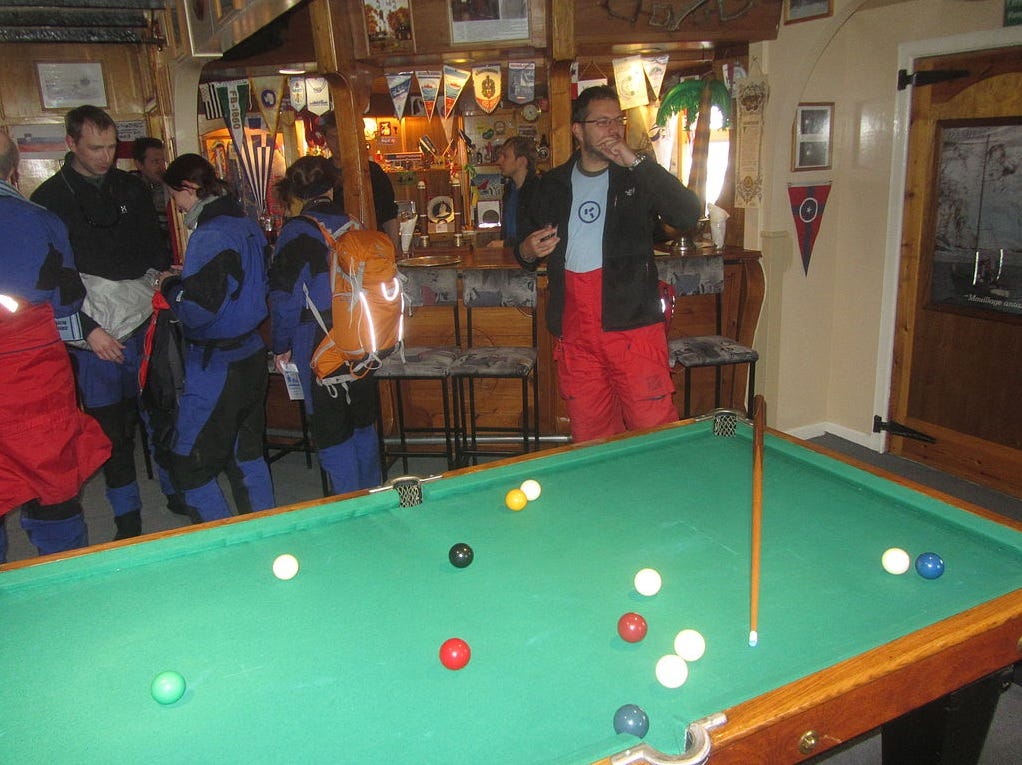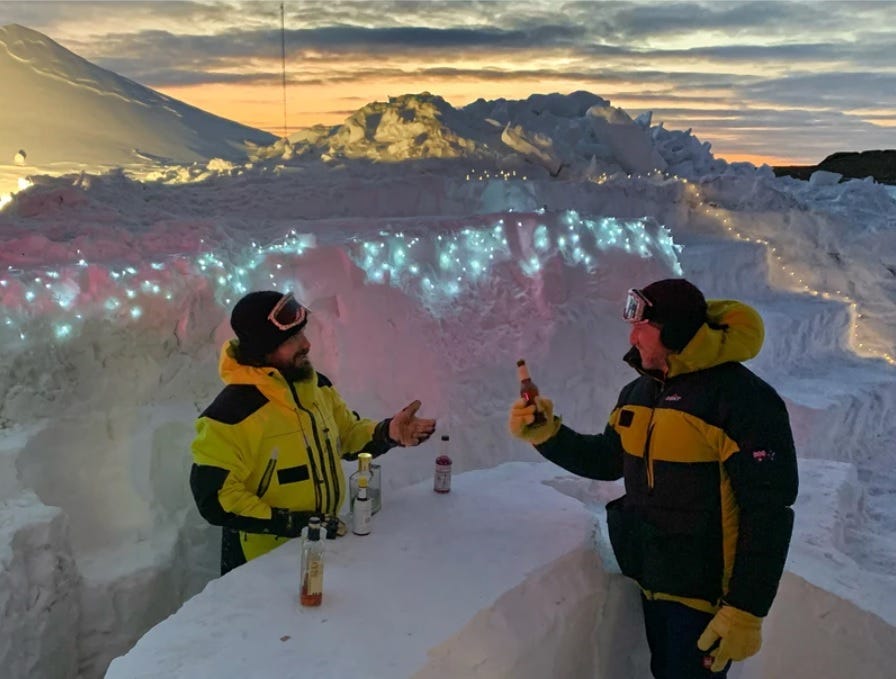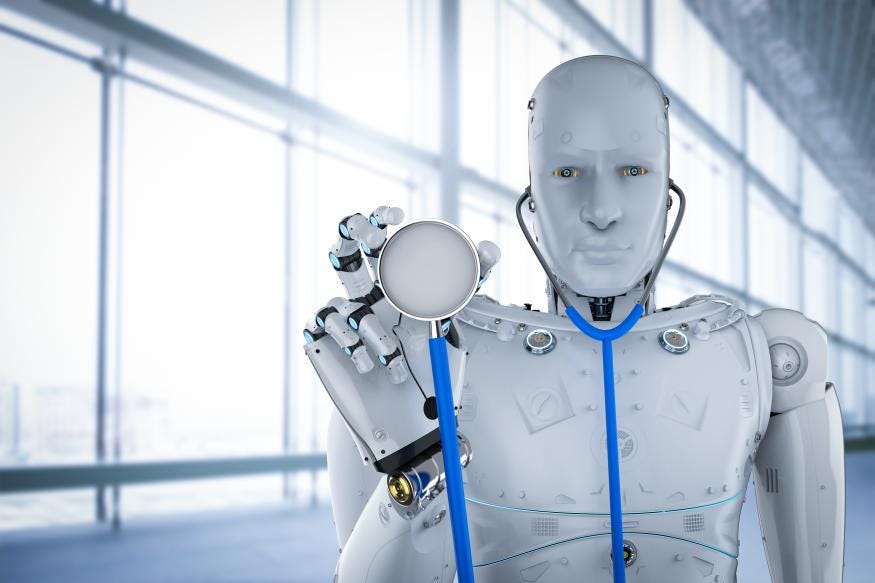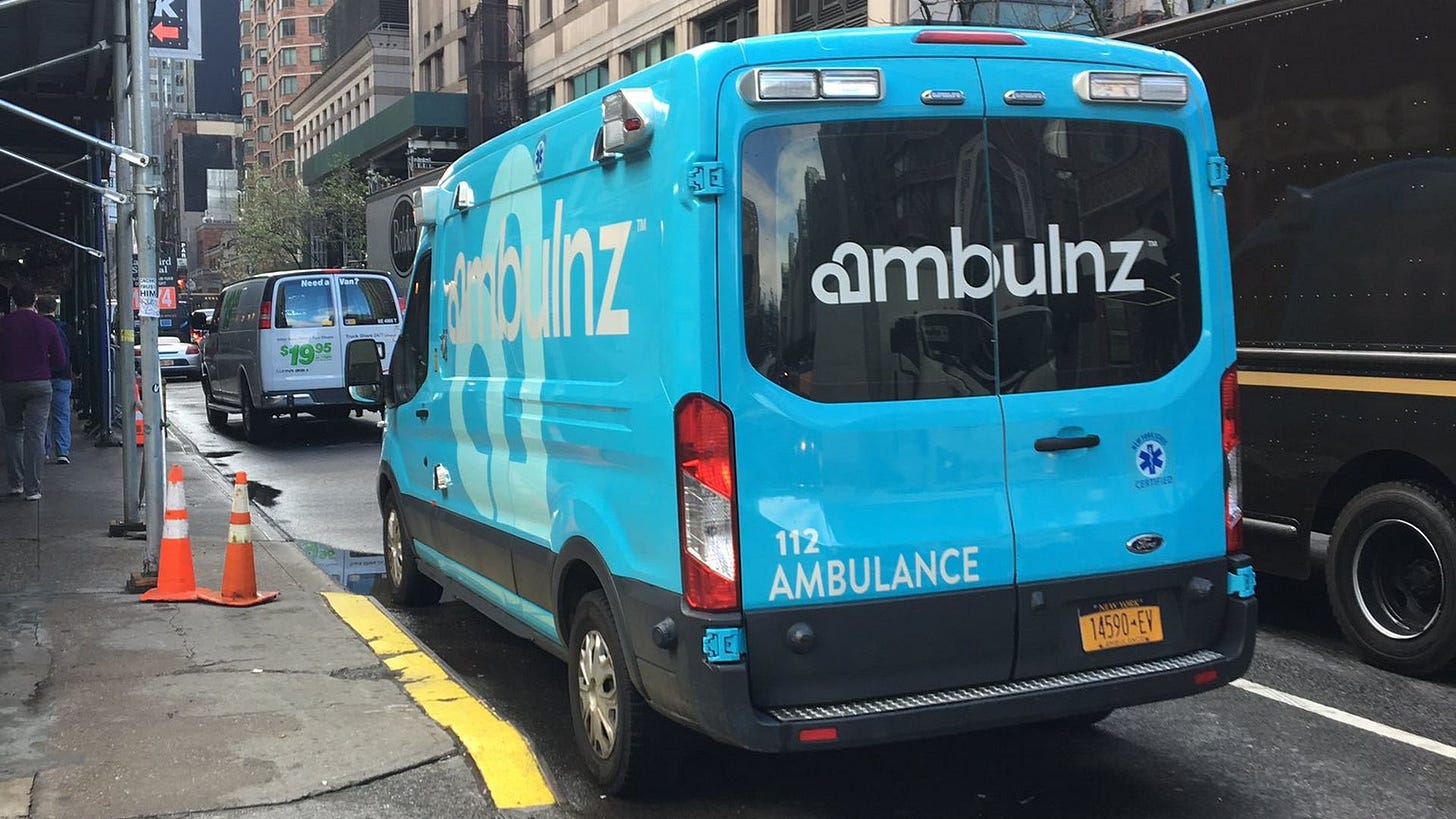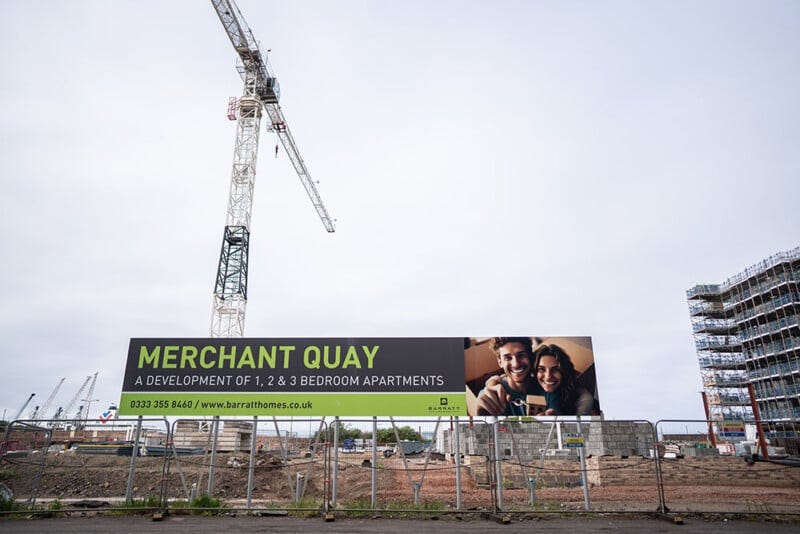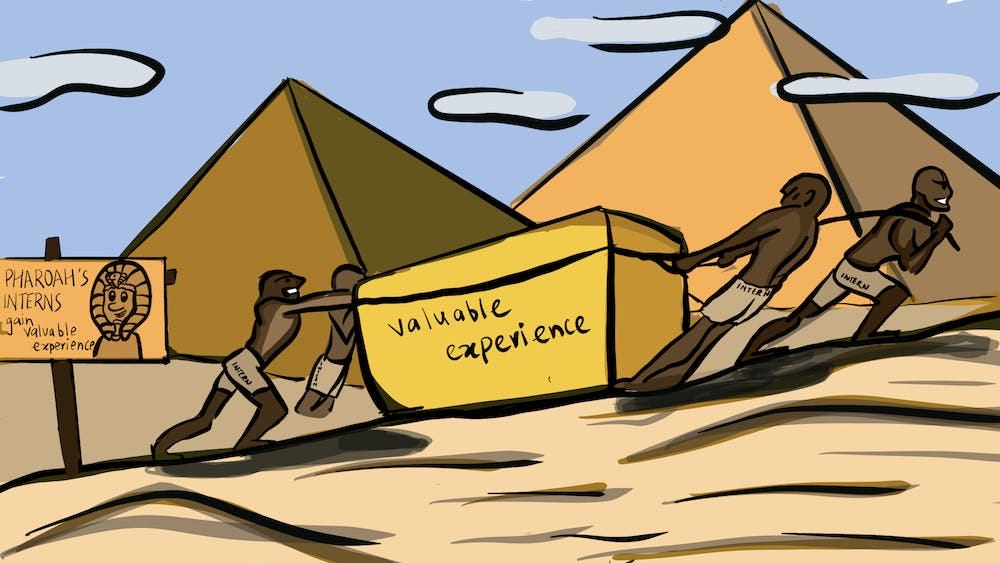
This week on The Job, we refuse to work for free, but do a good enough job and celebrate by kicking back with some extra ice in our drinks (while supplies last).
I’m AJ Freeman, and “This Was a Real Job.”
This Week in Work: The Secret Lives of Very Serious People
In last week’s edition we discussed Very Serious People (you know, the ones highlighted on your grown-up TV with their carefully measured cadences, acceptable frames of reference, and traditional Western dress costumes) and how nearly none of them seem to be processing the challenges of our time—climate chaos, widespread automation, neofascism—with appropriate gravitas.
Particularly over the past few years, it’s been fascinating to witness adulthood in practice. I was born in the late 80s, and although third-party evaluations of my everyday attire include phrases like “imaginary friend” and “millenial George Clinton,” if you regularly read “This Is a Real Job,” it is readily apparent that I take a number of things very seriously indeed. (If not, plzlikesharensubscribeyay!)
In that frame, I’ve gone back and forth on my self-image as a Serious Person…Like, sure I like to have a good time, but back when I was a copywriter I met all my deadlines (or else). I can and have hit the streets in protest wearing light-up shoes. From many angles, I am something that strongly resembles an adult.

With that typed, there are certainly much more serious people than I walking around our homeworld…laser-focused human beings with boundless commitment to their chosen pursuits. While I can barely keep up with my weekly posting scehdule, these people are spending each day’s final breath on chasing down their vision of a better world.
You’ve seen these people, benefitted from their solemn self-oath to serve in their chosen capacity. They are teachers, social workers, healthcare professionals, and other passionate people punished by society for caring so goddamn much.
When I think of the outrageous demands placed on these pillars of civilization—particularly as costless labor becomes an increasingly tempting option for public budgets strained by design—and the accompanying expectations that they live an austere, monk-like lifestyle in service to their professions—I think of a job that may be less common, but is no less important to our shared survival.
Recently I watched a documentary following climate scientists at the South Pole, who no one can accuse of not being serious enough about their jobs. Here are people who followed their interest in the water cycle we were all taught in overalls clear through a decade-plus of student debt and half a world away from whereever on The Planet they lived to the bottom of the globe.
Oh, and it’s fucking freezing. That alone is a deal-breaker for me…these South Pole scientists live for what they do in the truest sense of the phrase.
I’ll spare you the toxic mist of microdetails explored in the documentary—anyone curious knows where we are with this climate thing, anyone that isn’t will only notice when an NFL stadium is destroyed in a Cat 6—and get straight to my takeaway from watching it.
Amid so much directly educational content, I noticed that carefully ensconced within this remote network of research facilities, all built to the most practical standards and containing some of most serious equipment ever screwed together, are not one, but TWO public spaces.
They’re referred to as “bars” in the doc but are more like multipurpose rooms…pool tables, dartboards, bingo night, the occasional science prom. They’re a bit sparse, to be sure…but nothing a few streamers can’t instantly liven up.
The point here is this: even some of the most serious human beings ever to draw breath, operating from a fully pragmatic perspective, acknoweldge a bit of fun from time to time as essential to a successful scientific endeavour.
If you think about it, research stations in Antarctica (which I wager you’ve never pronounced carefully in your life, lot of hard consonants in that set of syllables) are essentially the closest analogue we have for long distance space travel, another scenario where it’s cold as fuck, resources are short, and the response time on outside assistance can be measured in days if you’re lucky.
You’re probably going to want to unwind a bit after a shift on that job. Hell, the first long-term spaceflights without regular resupplies from the homeworld will probably need some kind of dedicated relationship engineer…you put a bunch of monkeys in a space submarine for 8 straight months and watch what happens.
You don’t even have to go on some big dramatic interplantary adventure to observe the effects of isolatory stress just by having a memory longer than 5 seconds. We just went though a global medical disaster (well, most of us) that confined people to their individual living spaces for a few days at a time, and the entire fabric of society came unsettlingly close to unraveling.
Returning to the author of this newsletter, as all things in it inevitably do, I’m lucky enough to have an oceanographer in my social circle. I’ve broached these Very Serious subjects with him before, and he will candidly engage, but for obvious reasons he doesn’t love discussing his findings at length.
He takes this stuff seriously enough to spend his only life studying it, and even continued doing so when the conclusions were not to his liking, but in our time together he’d much rather concentrate on beer temperature than ocean temperature.
As a PoliSci major, I totally get that…and that’s why I was encouraged after watching the nature documentary (there’s a sentence that’ll get rare in a hurry).
Taking a look at some lives lived quite contrary to my own, but aimed in the same general direction, it is clearer to me that I am deadly fucking serious about everything I type in this space. It’s just that I consider feeding my inner child to be the most potent form of self-actualization…today that looks like writing this, tomorrow I’ll probably draw something cool on my face or whatever.
Maximizing the quality of my leisure in a world designed purely for work IS what I take most seriously…tricky to monetize, but it’s work I’m passionate about.
It’s something that’s easy to forget in our chrome-plated, fully automated future, but personal inclination, that force of nature that drags us out of bed and toward a hope of something more—anyone actually caring at all—is the driving force behind any sustainable success. It’s why they call us “human resources.”
…and yeah, that is kinda fucked up, huh?
Maybe Update Your Resume: Minute Clinicians?
By now we’ve all read the headlines about AI’s ability to accurately diagnose various ailments in human patients, at times more efficiently than organic practitioners.
Of course, these utilities are still in the testing phase, and individuals who have access to conventional medical resources should continue to use them at this time. Rest assured that we are a (relatively) long time away from AI diagnosis being exclusively employed at the world’s elite treatment centers.

However, in the version of the US inhabited by most Americans, AI diagnosis represents an exciting new option in medical care.
In fact, some American cities have disability rates over 15 percent, which makes a lot of sense when you consider all those mass shootings have outcomes for their victims beyond “dead” or “alive,” and the country’s car-centric design offers ample opportunity to be struck by some of the largest and heaviest vehicles on our planet’s roads while being blamed for the interaction.
As infrastructrural concerns such as structure collapses, chemical spills, and air contamination combine with a long list of common ongoing health concerns, AI diagnosis will surely find a role in the modern healthcare picture.
Near-term, that means shorter lines at your local minute clinic as people realize a searchbox can save them a week’s groceries…sure, AI still has some issues with “hallucinations” rendering inaccurate information, but this only mirrors the difficulties that women and nonwhite Americans have faced in the medical field from organic doctors for generations and can be worked around I guess.
Longer-term, that means that these minute clinic locations are likely to become unprofitable and close, as profit is the sole justification for medical facilities. When ordinary citizens who end up in one of America’s extraordinary situations could easily find themselves in an “Ambulnz,” it can be no other way.
Of course, the same people who advised the public not to WebMD themselves into an early grave will likewise warn people without any better options not to seek out an AI diagnosis. I can’t in good conscience recommend it either.
It’s true: in a well-organized society, AI diagnosis would not see popular uptake for years, or at least until the beta testing phase is worked out.
…but this isn't a well-designed society at all, so expect to see more of this shit.
Cannot Be Unseen: Close Enough
This could have certainly fallen under the “Maybe Update Your Resume” heading as it relates to stock photographers specifically—sorry if you thought your job made it through the week—but the scope of this phenomenon transcends any individual profession…it’s more of a systemic thing.
Any interested observer who casts an analytic gaze at that billboard a paragraph up will start to notice something a little off in the image, but if you’ve been keeping pace with news of the AI age, you know exactly what’s weird about it.
That’s right, those two happy human beings in the ad were never born.
The actual details are as banal as you’d expect…UK-based residential property goliath Barratt Homes, needing a pair of fresh faces to depict the fulfilling indoor lifestyles stored behind the company paywall, licensed the image through Adobe Stock (which now accepts AI-generated submissions, possible career pivot).
Appearing at first at a new development in Edinburgh, Scotland—and likely soon to be seen outside all the identical apartment buildings growing out of the ground in every major city on Earth—the image cost Barratt 60 USD to use here.
60 bucks that a photographer did not get, and that in any event would not have been enough to do anything but feed them once and get them a ride back home.
That is the freelance job market in the Age of AI.
Now, to measure both sides of the scale, this IS good practice at picking out the subtle imperfections generated when we ask a machine to draw a million human forms from memory and smash them together into a recognizable blob.
I imagine we’ll all be wanting to hone our AI discernment skills.
Still, it’s easy to see the drawbacks for every human being typically involved in the production of such promotional pictures. The models don’t exist, the image edited itself, the photographer legally had nothing to do with it (pending a US Supreme Court ruling).
But the actual issue here is that you don’t really care, at least for this purpose.
No doubt we would all pitch a whole fit if this was something we were supposed to be entertained by…we’ve all seen what happens when you give an animated mermaid the wrong suntan, or render an anthropomorphic hedgehog inaccurately.
Folks notice.
On the other hand the billboard advertising the end of human stock photography is just another dirty drop in the ocean of grey sludge that is “content,” the product description you half-glance at, those instructions you didn’t read, that way-too-serious company mission statement that automatically rolled your eyes…everything I used to pay the rent writing.
We’re kinda supposed to ignore it…not completely, but kinda.
Like, you don’t give a single damn about how the gentrification banner looks, that the lady’s neck is half a meter long and articulated in multiple places, the “not a key” Boyfriend is holding, that both their smiles look like doggie dentures.
Hell, I’m kinda surprised you got this far into the segment.
Even I can barely summon a fuck to give about this billboard despite the fact it’s my job to do so…and that’s why you can expect to see a lot more of this content.
If you the client have set out to make something remarkably inane and can achieve close to 100 percent of the effect at closer to 0 percent of the cost, logically why would you not use AI tools to make that happen?
How could you not?
No, the billboard is not really any good at all, from an aesthetic or creative standpoint.
…but eh, close enough yeah?
Hope Spot: Nobody Wants to Work (for free) Any More
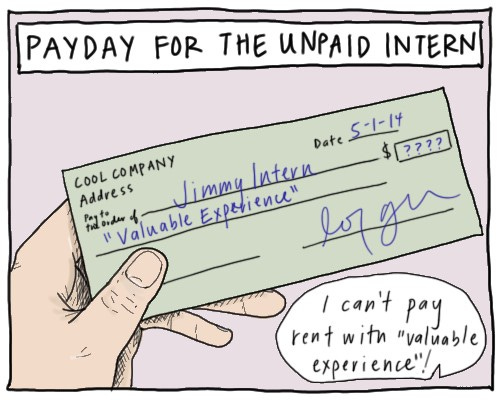
Finally, for just a dash of hope in this week’s dish, we look longingly at the EU as the entity again showcases that it is decades beyond its similarly “developed” political counterparts when it comes to a shared vision of society made perfect.
In a groundbreaking development, EU Parliament has initiated the process of introducing legally-binding bans on unpaid traineeships (another form of the “costless labor” so frequently referenced in this publication).
The benefits to the labor market are obvious—failure to install a pay floor in a profession exerts significant downward force on the ceiling—but the social benefits of enforcing proper wage compensation may be less so at first glance.
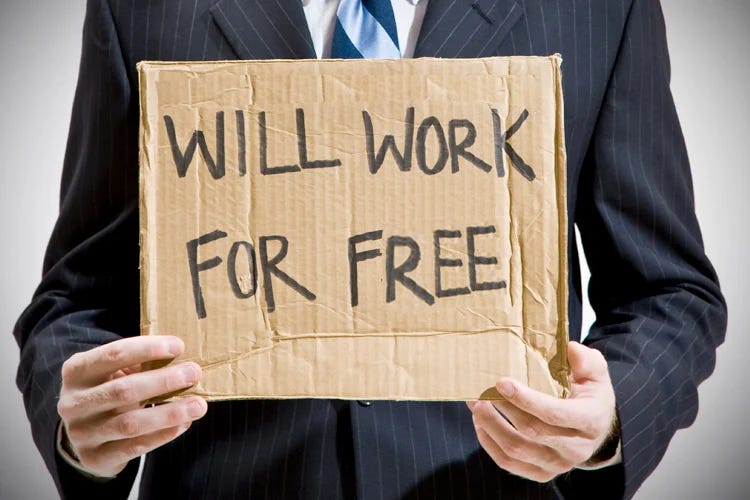
You see, it has long been my observation that requiring unpaid labor as an element of a career path is a clear class filter…after all, under our current system of economic organization somebody has to pay for an individual’s food and shelter if they do not produce wages from their employment, and so the only people that can afford to work for free have someone out there footing the bills.
The ownership class will mount their familiar defenses of the practice…building character, paying dues, that type of thing…which does make it funny that the people who talk most about paying dues also oppose unionization, but I digress.
Point is, if you’ve noticed that the top of every industry is populated by Familiar Last Names, consider how many choice career paths include working unpaid.
The latest initiative out of the EU appears to be a sincere effort to address these societal imbalances, if only in the faintest whisper of a way. Is it enough? Hell no. Is the legislation even active? Not yet. Sure, as the article says, they “want” these legally binding resolutions…but as my mommy often said, people in Hell “want” ice water. We’ll see if any trickles on down…but it’s not hard to see hope.
Compared with a country in which no federal protections exist around sick time and the minimum wage has not been raised since the release of the first iPhone, it’s easy to see that technological development does not necessarily equal progress…ensuring a fair day’s work inches ever closer to a fair day’s pay is much more like it.




